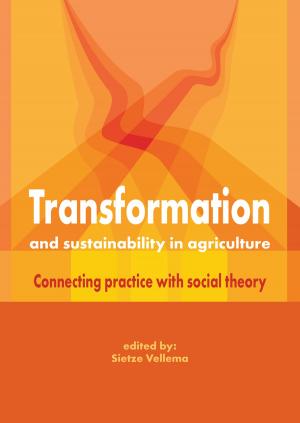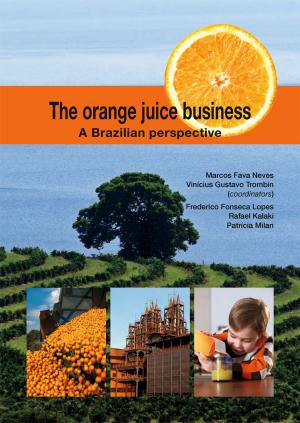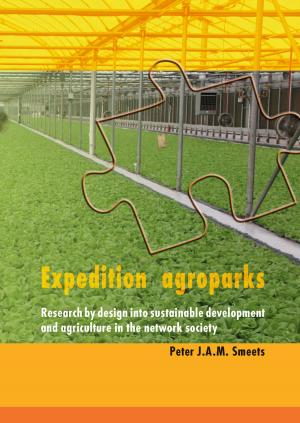| Author: | Marcos Fava Neves, Mairun Junqueira Alves Pinto, Marco Antonio Conejero, Vinicius Gustavo Trombin | ISBN: | 9789086867219 |
| Publisher: | Wageningen Academic Publishers | Publication: | September 25, 2011 |
| Imprint: | Wageningen Academic Publishers | Language: | English |
| Author: | Marcos Fava Neves, Mairun Junqueira Alves Pinto, Marco Antonio Conejero, Vinicius Gustavo Trombin |
| ISBN: | 9789086867219 |
| Publisher: | Wageningen Academic Publishers |
| Publication: | September 25, 2011 |
| Imprint: | Wageningen Academic Publishers |
| Language: | English |
This book is a contribution of the authors to the food - fuel debate. During 2007 and 2008 several factors led to the food inflation problem: growing population, income distribution, urbanization, biofuel, social programs, production scarcity etc.. Biofuel got most of the blame for food inflation but its responsibility was only limited. There are several possibilities of solving the food inflation problem that are discussed this book. It explores the example of Brazil’s agricultural sector, where a quiet revolution occurred in the last 15 years. This development is leading to Brazil becoming one of the largest food exporters globally. This position will strengthen as an additional 100 million hectares becomes available for crop development. The second part of the book explores the basics of the sugar cane chain. Sugar cane occupies less than 2% of Brazilian arable land and supplies 50% of Brazilian car fuel. In 2010 Brazil produced 53% of the world’s sugar. Sugar cane produces sugar, ethanol (used as car fuel), biogases that are used to co-generate electricity and other by-products. Biofuel is a booming industry. New technologies allow production of diesel and other fuels from cane. Sugar cane ethanol is the only renewable fuel that can currently compete with gasoline. Coca Cola just launched the plastic bottle with sugar cane plastic. This book helps us to understand Brazilian agribusiness and sugar cane economics from various perspectives e.g. international investments, sustainability, future trends and the strategic plan for the Brazilian industry.
This book is a contribution of the authors to the food - fuel debate. During 2007 and 2008 several factors led to the food inflation problem: growing population, income distribution, urbanization, biofuel, social programs, production scarcity etc.. Biofuel got most of the blame for food inflation but its responsibility was only limited. There are several possibilities of solving the food inflation problem that are discussed this book. It explores the example of Brazil’s agricultural sector, where a quiet revolution occurred in the last 15 years. This development is leading to Brazil becoming one of the largest food exporters globally. This position will strengthen as an additional 100 million hectares becomes available for crop development. The second part of the book explores the basics of the sugar cane chain. Sugar cane occupies less than 2% of Brazilian arable land and supplies 50% of Brazilian car fuel. In 2010 Brazil produced 53% of the world’s sugar. Sugar cane produces sugar, ethanol (used as car fuel), biogases that are used to co-generate electricity and other by-products. Biofuel is a booming industry. New technologies allow production of diesel and other fuels from cane. Sugar cane ethanol is the only renewable fuel that can currently compete with gasoline. Coca Cola just launched the plastic bottle with sugar cane plastic. This book helps us to understand Brazilian agribusiness and sugar cane economics from various perspectives e.g. international investments, sustainability, future trends and the strategic plan for the Brazilian industry.















